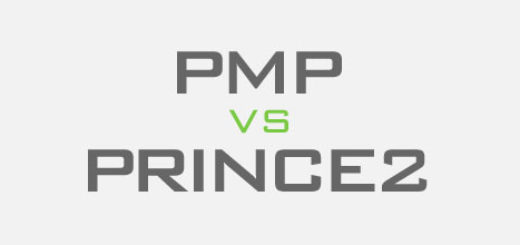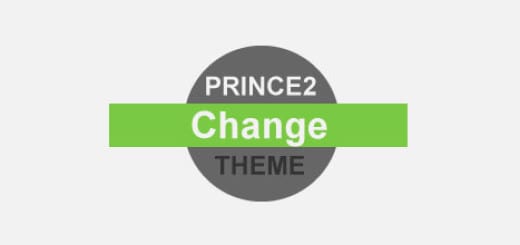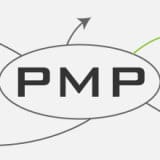PRINCE2 Foundation Certification Notes 10: Progress Theme

Important: The new PRINCE2® Foundation and Practitioner exams (PRINCE2® 2017) are available from 10 July 2017 (details of the changes here). Don’t worry, the changes are quite minor indeed as all the 7 principles, themes and processes remain the same. From now on until the end of 2017, candidates can take either the existing or updated English versions of the PRINCE2® exam. All PRINCE2® Foundation and Practitioner exams will be based on PRINCE2® 2017 from 1 January 2018. You can still seize the time to get certified based on the current version! Once you get PRINCE2® certified, your certification is still valid under PRINCE2® 2017 and onwards!
Introduction: In PRINCE2®, there are 7 Themes describing important aspects of project management that are vital to the success of the project. The Progress Theme is the final PRINCE2® Theme which aims to establish the mechanisms to monitor actual achievements vs planned so that timely corrective actions can be deployed to ensure the success of the project. The PRINCE2® Foundation Study Notes for the Progress Theme below details what are needed for the PRINCE2® Foundation Exam. The Change Theme supports the following PRINCE2® principles:
- Manage by Stages
- Continued Business Justification
- Managed by Exception
Article Highlights
PRINCE2® Theme: Progress
- The Progress Theme is to provide a mechanism for checking the actual achievements (Time, Cost, Quality, Scope, Benefits and Risk) against those planned and to provide forecasts so that deviations are continuously monitored and controlled for the Project Plan, Stage Plan and Work Package levels.
Key Definitions
- Exception — occurs when there are deviations beyond the agreed tolerance, exceptions are raised as exception reports to Project Board/Management
- Tolerance — the upper/lower limits from the agreed target; applicable to all six tolerance areas — Time, Cost, Quality, Scope, Benefits and Risk
- Project Tolerance — set for the overall project targets by Management
- Stage Tolerance — set for the stage by Executive
- Work Package Tolerance — set for individual work packages by Project Manager
- Progress Controls — ensure that monitor of project progress is done with supervision from the next level through:
- Authorizations
- Progress Update
- Exception and Changes
PRINCE2® Approach to Progress
- Delegating Authority
- tolerances set by one level to the next (i.e. Project Manager -> Team Manager)
- escalation is only required when the tolerances are breached
- Dividing into management stages
- need authorization to enter the next stage
- initiation -> project -> stage(s) -> project closure
- a minimum of two management stages for the PRINCE2® Projects:
- Initiation Stage — plan the project
- Delivery Stage (at least one) — create the products
- The number and duration of management stages are to be tailored for individual project environment/circumstances
- note: management stage and technical stage can be different
- need authorization to enter the next stage
- Progress reports (time-driven and event-driven)
- Exception Reports — [event-driven] for reporting issues going beyond stage/project tolenaces to Project Board/Management
- Checkpoint Reports — [time-driven] for reporting progress within a Work Progress by Team Managers to Project Manager
- Highlight Reports —[time-driven] for reporting the current status compared to the Stage Plan tolerances by Project Manager to Executive
- End Stage Reports — [event-driven] for reporting the final status compared to the Stage Plan by Project Manager to Project Board
- End Project Reports — [event-driven] for reporting the final project status at end of the project during the “Closing a Project” process by Project Manager to Project Board
- Lessons Reports (Lessons Learned Reports) — [event-driven] for documenting valuable lessons learned at the end of the project during the “Closing a Project” process / during the “Managing a Stage Boundary” process
- Escalating Exceptions
- Exceptions — to alert above level if things go out of/are forecasted to go out of agreed tolerances
Progress Theme: Roles and Responsibilities
- Corporate or Programme Management: provide the project tolerances and make decisions on project Exception Plans
- Executive: determine stage tolerances and make decisions on stage Exception Plans; also ensure project progress
- Senior User(s): ensure project progress consistent with users’ point of view
- Senior Supplier(s): ensure project progress consistent with suppliers’ point of view
- Project Manager: authorizes work packages, monitors Stage Plans progress as well as produces progress/exception reports
- Project Assurance: verifies the Business Case against project progress and changes to Project Plan
- Team Manager: produces Checkpoint Reports, escalates issues for deviations beyond Work Package tolerances (issue)
- Project Support: compiles the progress reports and maintains registers
(The PRINCE2® Progress Theme is similar to the Project Integration Management (Monitor and Control Project Work) as described in the PMBOK® Guide for PMP Certification Exam dealing with tracking and comparing the progress of the project against what’s planned in the Project Plan as in the PMP Exam.)
Wish you PRINCE2® Foundation Exam success!




 Hi, my name is Edward Chung, PMP, PMI-ACP®, ITIL® Foundation. Like most of us, I am a working professional pursuing career advancements through Certifications. As I am having a full-time job and a family with 3 kids, I need to pursue professional certifications in the most effective way (i.e. with the least amount of time). I share my exam tips here in the hope of helping fellow Certification aspirants!
Hi, my name is Edward Chung, PMP, PMI-ACP®, ITIL® Foundation. Like most of us, I am a working professional pursuing career advancements through Certifications. As I am having a full-time job and a family with 3 kids, I need to pursue professional certifications in the most effective way (i.e. with the least amount of time). I share my exam tips here in the hope of helping fellow Certification aspirants!





